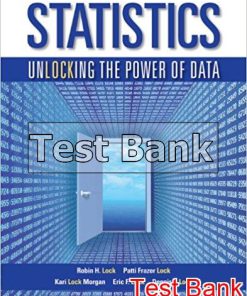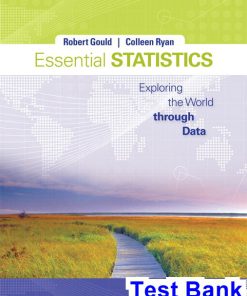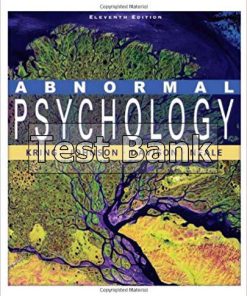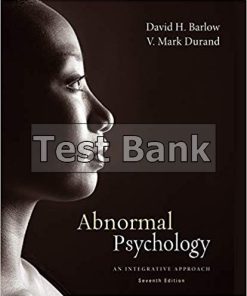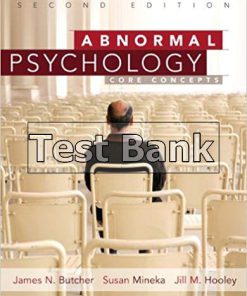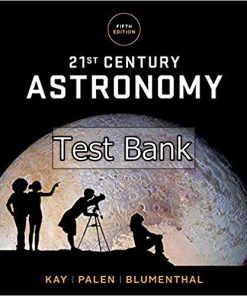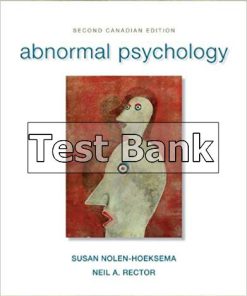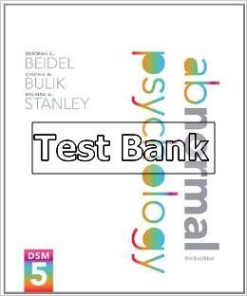Introductory Statistics Exploring the World Through Data 1st Edition Gould Test Bank
$26.50$50.00 (-47%)
Introductory Statistics Exploring the World Through Data 1st Edition Gould Test Bank.
You may also like
-
$26.50
$50.00
Introductory Statistics Exploring the World Through Data 1st Edition Gould Test Bank

Product details:
- ISBN-10 : 013518892X
- ISBN-13 : 978-0135188927
- Author: Robert L. Gould
Embracing these characteristics, Introductory Statistics teaches students how to explore and analyze real data to answer real-world problems. Crafted by authors who are active in the classroom and in the statistics education community, the 3rd Edition pairs a clear, conversational writing style with new and frequent opportunities to apply statistical thinking. Its tone and learning aids are designed to equip any student to analyze, interpret, and tell a story about modern data, regardless of the student’s mathematical proficiency.
Table contents:
1: Introduction to Data
1.1 What Are Data?1.2 Classifying and Storing Data1.3 Investigating Data1.4 Organizing Categorical Data1.5 Collecting Data to Understand Causality
2: Picturing Variation with Graphs
2.1 Visualizing Variation in Numerical Data2.2 Summarizing Important Features of a Numerical Distribution2.3 Visualizing Variation in Categorical Variables2.4 Summarizing Categorical Distributions2.5 Interpreting Graphs
3: Numerical Summaries of Center and Variation
3.1 Summaries for Symmetric Distributions3.2 What’s Unusual? The Empirical Rule and z-Scores3.3 Summaries for Skewed Distributions3.4 Comparing Measures of Center3.5 Using Boxplots for Displaying Summaries
4: Regression Analysis: Exploring Associations between Variables
4.1 Visualizing Variability with a Scatterplot4.2 Measuring Strength of Association with Correlation4.3 Modeling Linear Trends4.4 Evaluating the Linear Model
5: Modeling Variation with Probability
5.1 What Is Randomness?5.2 Finding Theoretical Probabilities5.3 Associations in Categorical Variables5.4 Finding Empirical Probabilities
6: Modeling Rando Events: The Normal and Binomial Models
6.1 Probability Distributions Are Models of Random Experiments6.2 The Normal Model6.3 The Binomial Model (Optional)
7: Survey Sampling and Inference
7.1 Learning about the World through Surveys7.2 Measuring the Quality of a Survey7.3 The Central Limit Theorem for Sample Proportions7.4 Estimating the Population Proportion with Confidence Intervals7.5 Comparing Two Population Proportions with Confidence
8: Hypothesis Testing for Population Proportions
8.1 The Essential Ingredients of Hypothesis Testing8.2 Hypothesis Testing in Four Steps8.3 Hypothesis Tests in Detail8.4 Comparing Proportions from Two Populations
9: Inferring Population Means
9.1 Sample Means of Rando Samples9.2 The Central Limit Theorem for Sample Means9.3 Answering Questions about the Mean of a Population9.4 Hypothesis Testing for Means9.5 Comparing Two Population Means9.6 Overview of Analyzing Means
10: Associations between Categorical Variables
10.1 The Basic Ingredients for Testing with Categorical Variables10.2 The Chi-Square Test for Goodness of Fit10.3 Chi-Square Tests for Associations between Categorical Variables10.4 Hypothesis Tests When Sample Sizes Are Small
11: Multiple Comparisons and Analysis of Variance
11.1 Multiple Comparisons11.2 The Analysis of Variance11.3 The ANOVA Test11.4 Post-Hoc Procedures
12: Experimental Design: Controlling Variation
12.1 Variation Out of Control12.2 Controlling Variation in Surveys12.3 Reading Research Papers
13: Inference without Normality
13.1 Transforming Data13.2 The Sign Test for Paired Data13.3 Mann-Whitney Test for Two Independent Groups13.4 Randomization Tests
14: Inference for Regression
14.1 The Linear Regression Model14.2 Using the Linear Model14.3 Predicting Values and Estimating Means
People also search:
introductory statistics exploring the world through data
introductory statistics 10th edition
introductory statistics
introductory statistics pdf free
introductory statistics download scribd

